Reconnaissance – the Cure for Slow Fishing and Getting in Touch with your Fishery
“Just drive down that road, until you get blown up,” – General George Patton, about the role for reconnaissance troops
“Time spent in reconnaissance is seldom wasted,” – John Marsden
Viewed through the lens of modern warfighters, General Patton’s methods for reconnaissance were extremely crude. Although a bit simplistic, he makes a valuable point for anglers who often get comfortable in routine. I have to check myself daily from going to that reliable water I know will catch fish. A recent reconnaissance mission put us in touch with something we believe worthwhile to explore. “Just driving down that road” taps into something primordial that we anglers cannot experience from working our reliable haunts – the excitement of fumbling into the unknown.
Although this started philosophical, that’s not the direction this essay will follow. We want to give our fellow anglers a methodology for “fumbling into the unknown.” Before starting down that road, we’ll drop one last plug as a quick aside to set the stage this “how to” piece. Over the past few weeks, conditions in Buffalo Niagara have been less than ideal. Cold, wind, bright skies, no precipitation (low water in some of the tribs) have been the bane of our fishing life lately. Sure, we’ve caught fish everywhere we went but it has definitely been a grind. So much so that we felt compelled to give fishing a rest and recon some new water we can fish when it warms up.
When was the last time you set out on a reconnaissance mission? Across the country, winters often carry a stigma for being tough. As this trying period is now ending, many anglers (us included) start getting excited for the more reliable spring fishing season. In western NY, that means steelhead, lake trout, and smallmouth bass. If you are just waiting for ideal conditions and relying on what you did last year – guess what – so is everyone else! That means that the same crowds/dense concentrations of anglers you experienced last year will be in play this year. How can you avoid this problem (around here it is definitely a problem – fistfights break out on some stretches of water)? If you don’t know how to begin, here are a few simple rules to get you started.
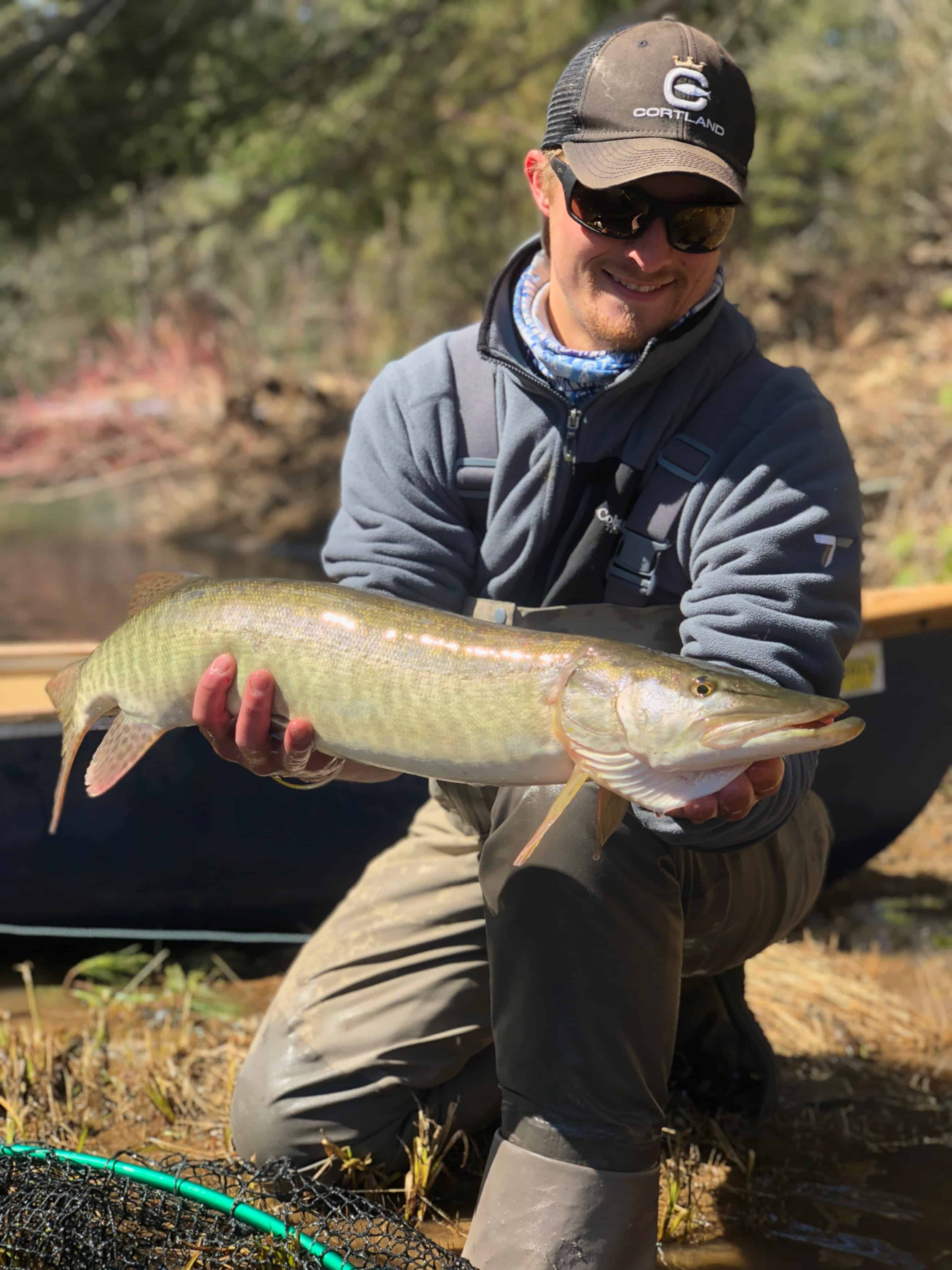
Nick and Nate capitalized on a solid recon session in PA this past week
Find the breadcrumb trail
Though, our favorite water to recon is the scarcely or totally unknown, forgotten, or otherwise underutilized fisheries – many bodies of water that you want to explore may be brand new to you but old hat for someone else. Take advantage and find the little nuggets lying around on the internet (while understanding that not all of it may be reliable). Use your favorite search engine with general terms of what your looking for and start following the trail. Use the collective knowledge that is already out there to build upon and take it to the next level.
Wait for it; this is going to be earth shattering, BUY A MAP!
Whether you are just getting into fishing or have been an avid angler for years, if your vehicle does not have some sort of detailed map/atlas/gazetteer, buy one ASAP and study it. There is some potential in every blue line and dot. We use Delorme Atlas and Gazetteers for every state we fish. Canada has a similar product for all their provinces. You’d be amazed at how many blue lines and dots as well as state/national lands are within reach. It can be daunting and generate some anxiety.
Formulate a plan
As a former United States Marine, this was my specialty. For anglers that have “normal” jobs and only have time to fish/conduct reconnaissance on the weekends or holidays, TIME is your most precious resource. Developing a plan will ensure the most effective use of your time. Once you have a map, plan your route carefully, looking for the best roads to take you to potential access points. There are a couple sub-rules here as well.
In the Marine Corps (and I’m sure this is in the corporate world’s lexicon as well) we have a saying, “eat the elephant one bite at a time.” That Atlas we mentioned in rule 1 contains a lot of information. As you start out reconnoitering an area, cut it up into manageable pieces and explore one piece at a time. Before long, you will thoroughly cover a large portion of your area.
Bring a supply of food and water with you to avoid making stops – besides, if you are venturing off the grid, there may be nowhere to eat. Lack of food and water will cause an early culmination on your mission or may serve to suck the confidence out of you.
Get familiar with Google Earth
This program is an invaluable tool for doing preliminary, off-water reconnaissance. The software allows you to explore satellite imagery of any given body of water. Though it may not be as useful for small mountain blue line streams, it is a key tool to have in your bag for larger bodies of water like lakes, ponds and rivers. Take advantage of the historical imagery to see what a given piece of water looks like in the low flows of summer or high flows of springtime run-off.
For lakes and larger rivers, you can even identify structure like weed beds, flats, deep water and rocks to help formulate your on-the-water plan of attack. If floating rivers is your game, you can map out a float and even measure the number of river miles to ensure you don’t find yourself looking for the pull-out long after dark while wondering if you somehow missed it.
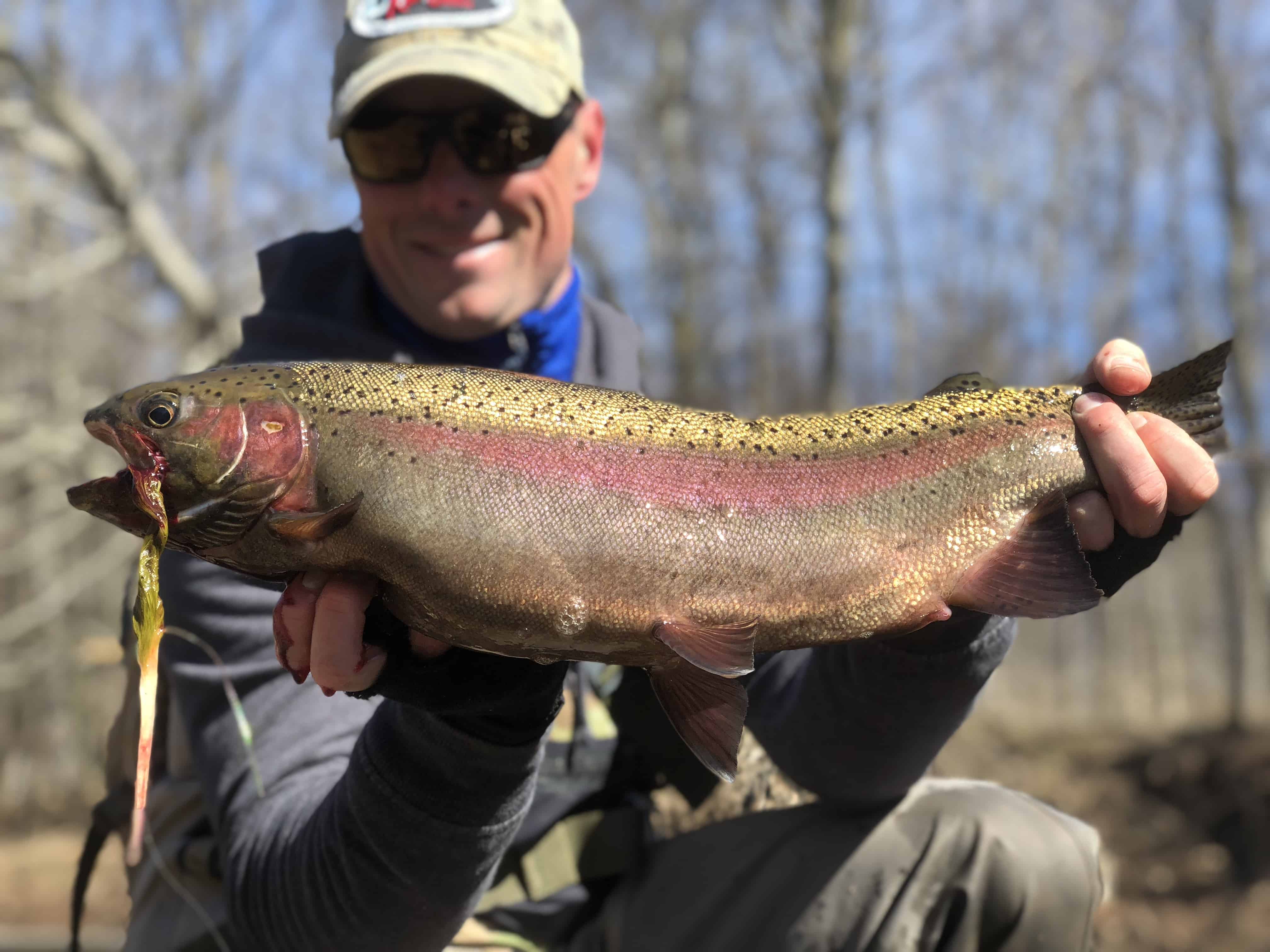
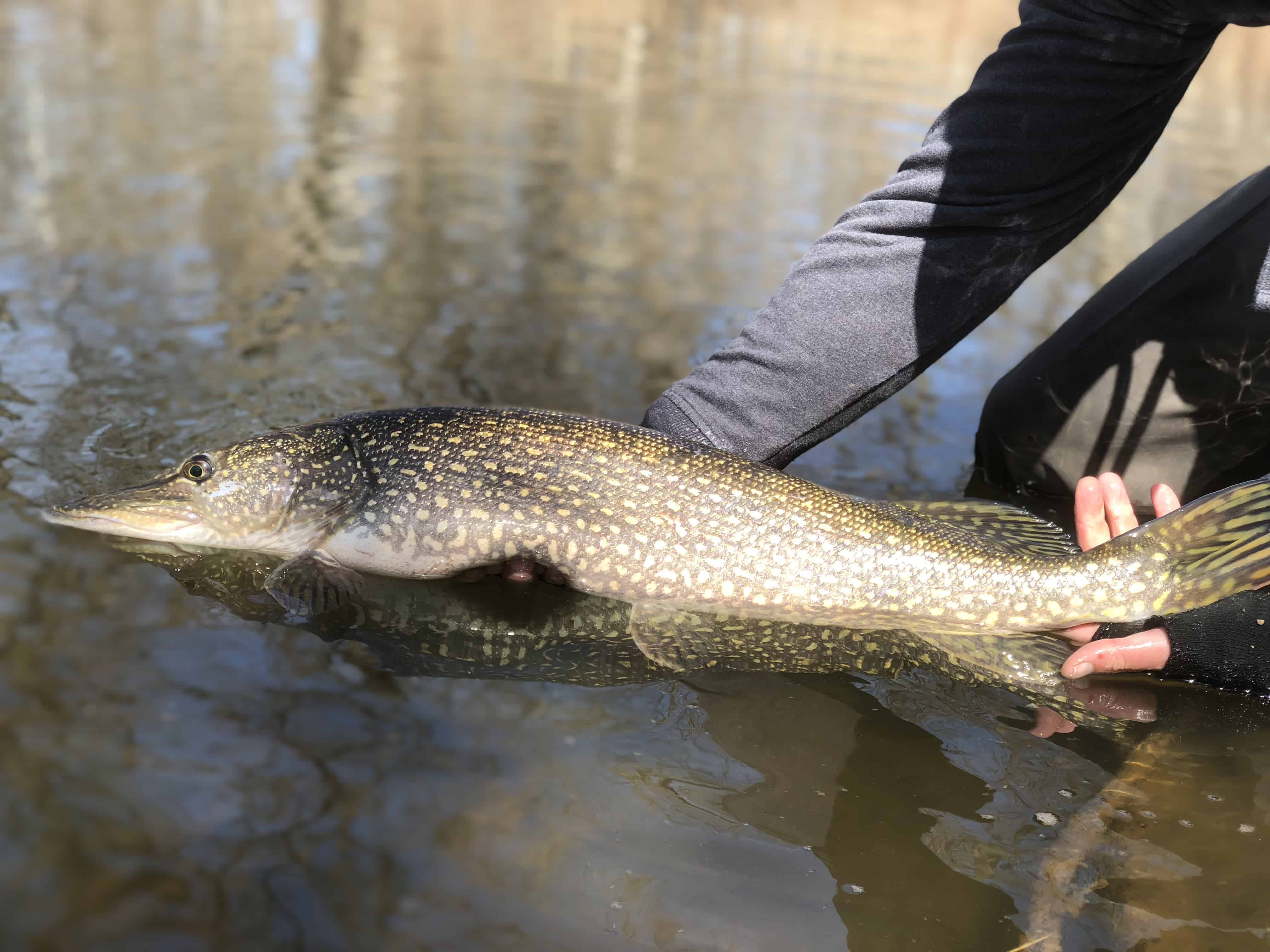
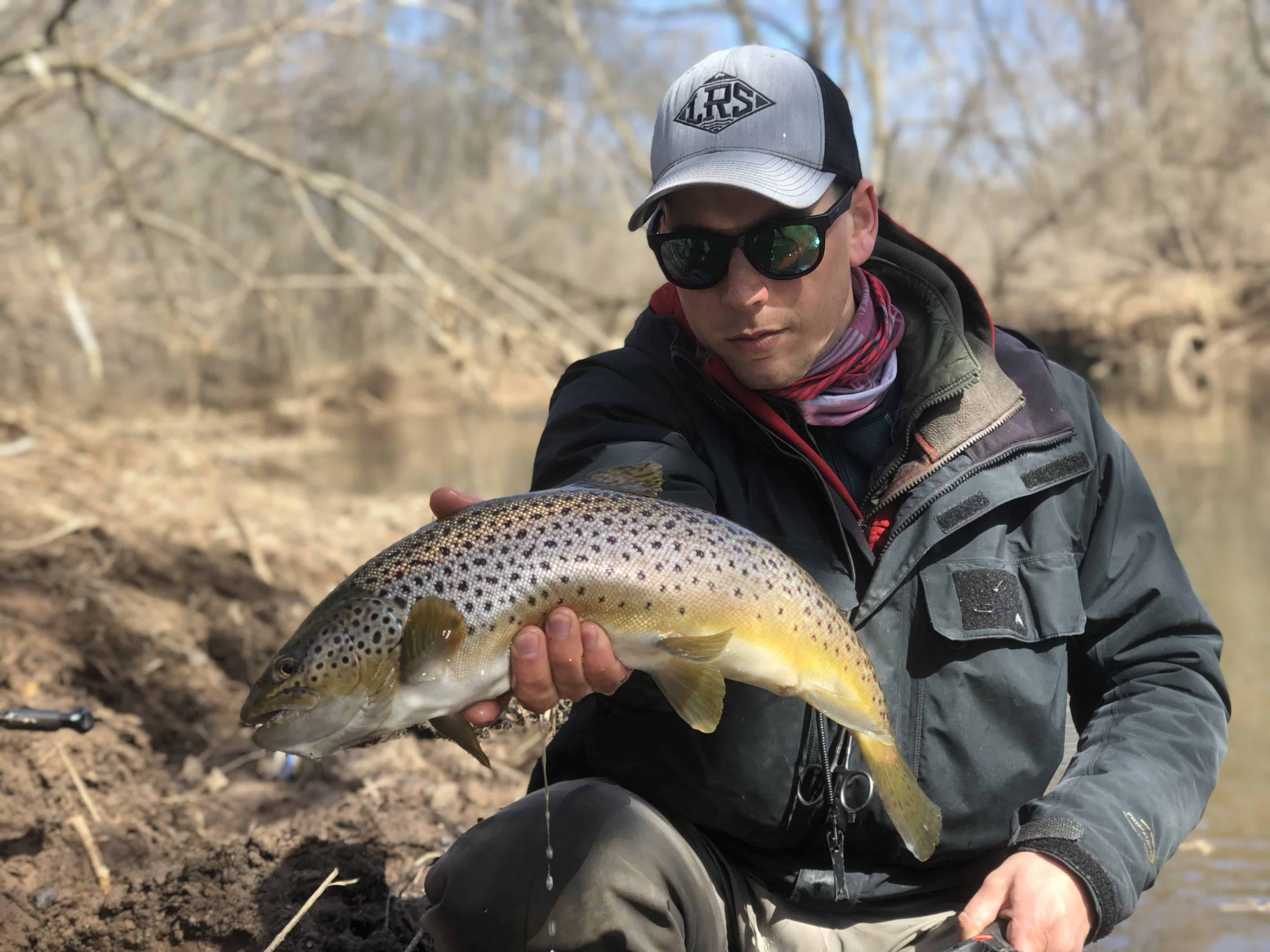
Do not bring fishing equipment with you
We put this rule out there with some reservation but remember the point of the mission: to gain information that you can use for a future outing. Your purpose is not to fish. I know, that sounds crazy, especially if you end up recon’ing some new water and see fish just begging to be caught. That’s understandable but remember the intangibles of fishing – embrace the excitement of discovering something new and develop a plan to go back.
Some may think not bringing gear is crazy so here is a compromise. If you must bring a rod with you, don’t get caught up growing roots in one spot. Keep moving and cover ground. Recon is about seeing a large enough slice of water that will allow you can form some broader conclusions and decide whether further, in-depth exploration is warranted.
Consider the environmental conditions
This rule is perhaps most important during summer recon missions. When you look at the water, consider what’s been happening with the weather lately. Is it low or boney? Maybe that’s because it hasn’t rained in weeks and that should trigger you to look for areas with deep pools where fish will likely hold until the water levels rise. Is the water raging and looking like chocolate milk? Well, that’s probably because it rained recently…or is it? In that situation, you at least know that the body of water is part of a viable drainage. If you visit a pond or lake, is the shoreline encroached with weeds? That’s probably because water temps are up and long periods of light are allowing the aquatic plants to grow. Try to picture this body of water in the late fall or spring.
Visit the tax assessor for the area
This may seem somewhat outdated as there are some apps that can do something similar. However, tax assessors have maps that show what land is public and what land is private. Tax assessors are also locals to that area. Developing rapport with them may connect you you to a slice of angling heaven you didn’t know was there.
Conclusion
Getting out there is the best part of fishing – at least it is for us. If you fish often enough, you know there are days you just can’t buy a bite. Recon’ing is another way of getting out there. In the best of circumstances, you’ll find water you can call your own for a bit. Worst case, you’ll find an area devoid of life but will have a better knowledge of the area. What do you have to lose…really?
Results of Last Week’s Time on the Water (2018.03.19 – 2018.03.25)
As we alluded to in last week’s blog, personal commitments kept us off the water for much of last week. We did get some water time in but it was a struggle. North winds, east winds, cold, low water in the tribs, etc. challenged us daily. We spent a HUGE amount of time on reconnaissance missions in preparation for the next 2 weeks.
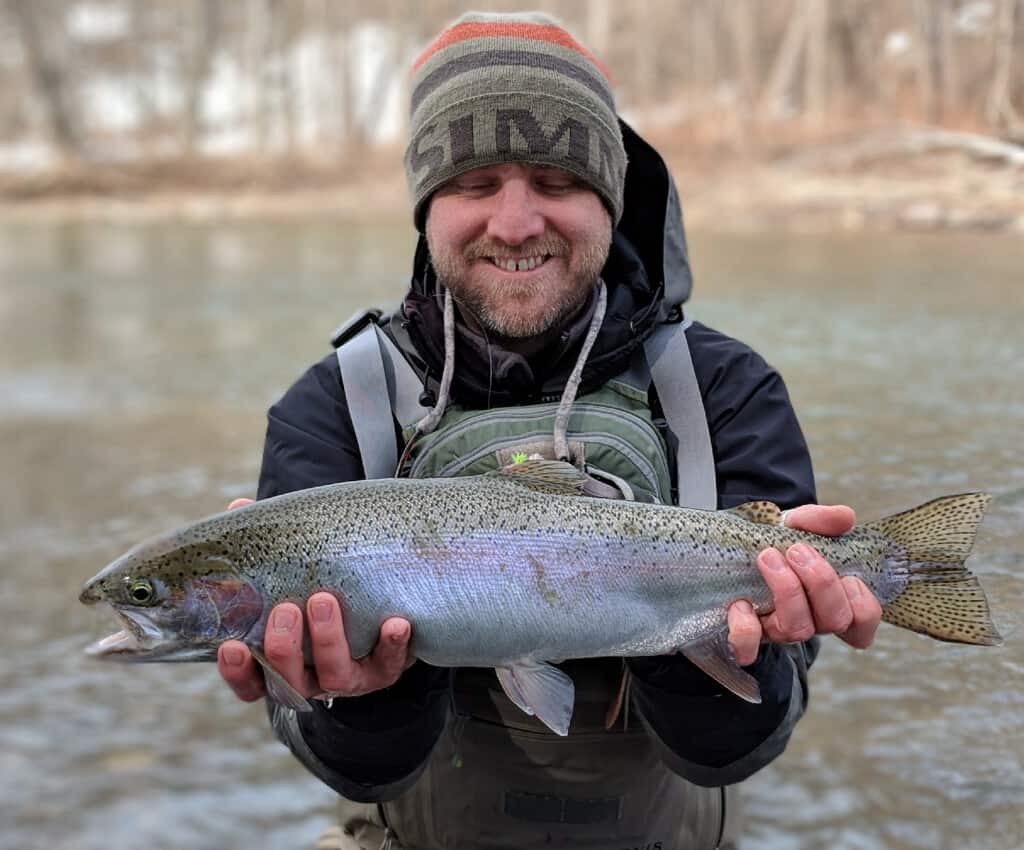
Tony “The Zone” Lohr of 85th Day Angling continues to enjoy his winter vacations here in Buffalo Niagara
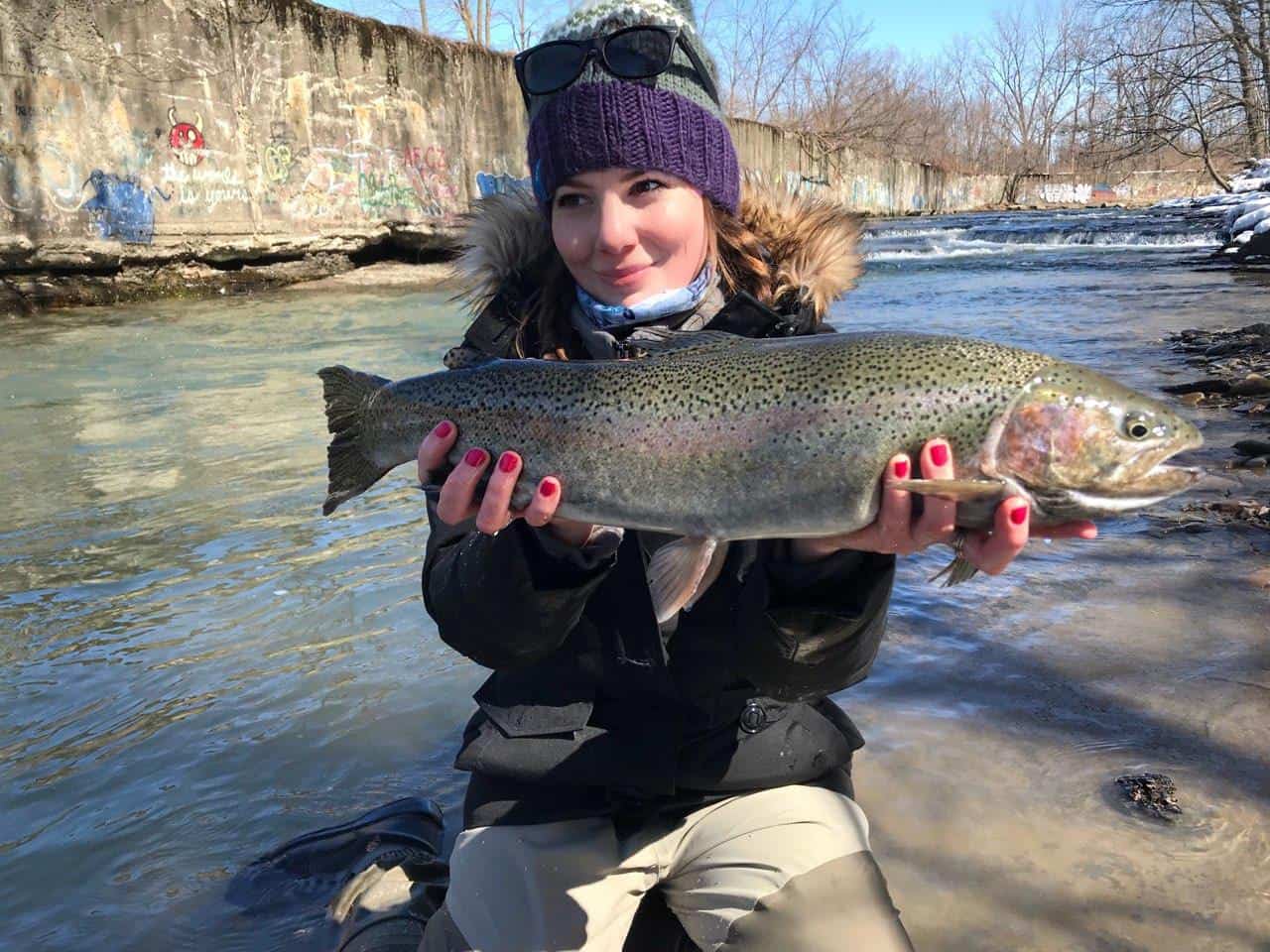
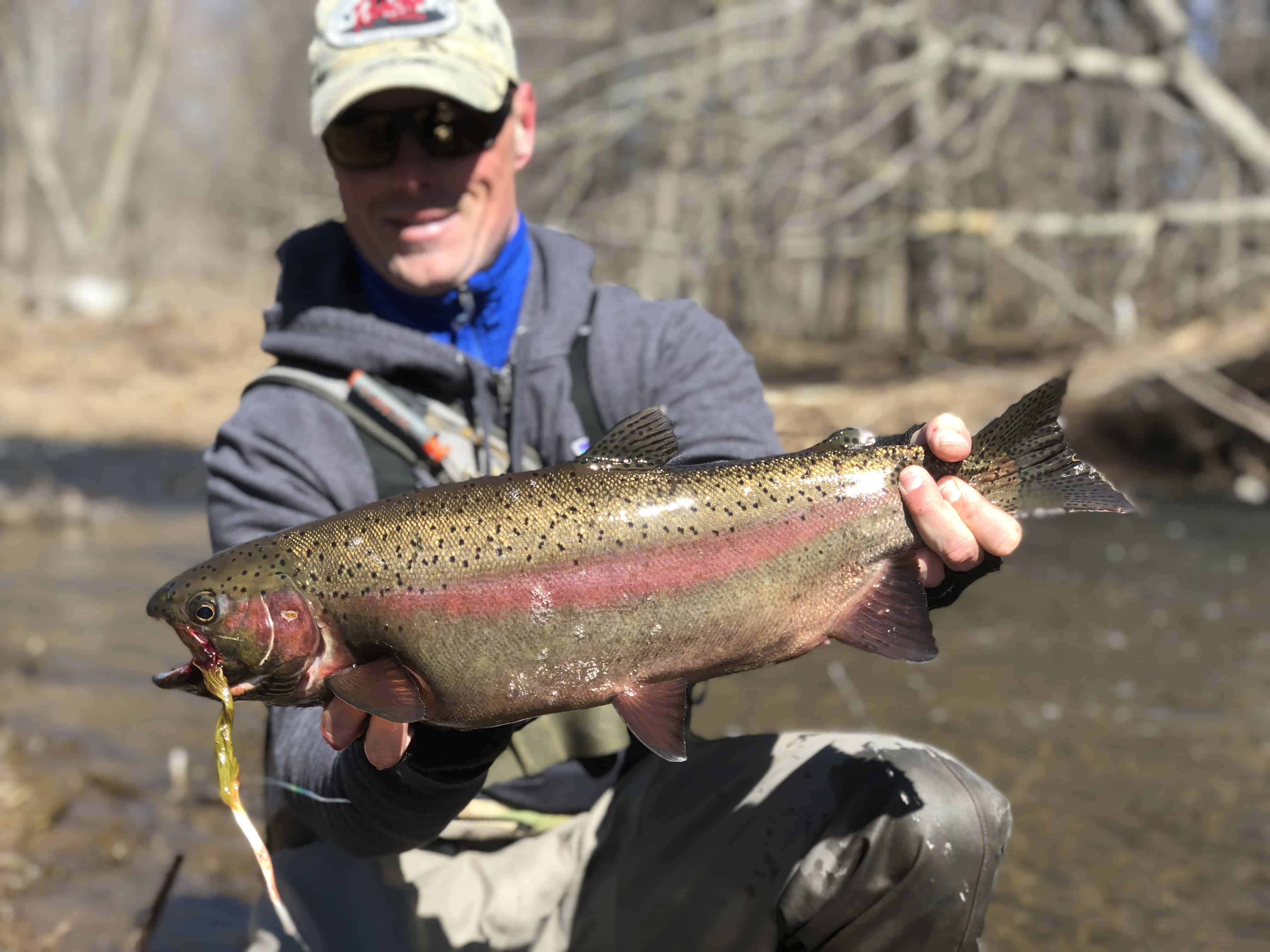
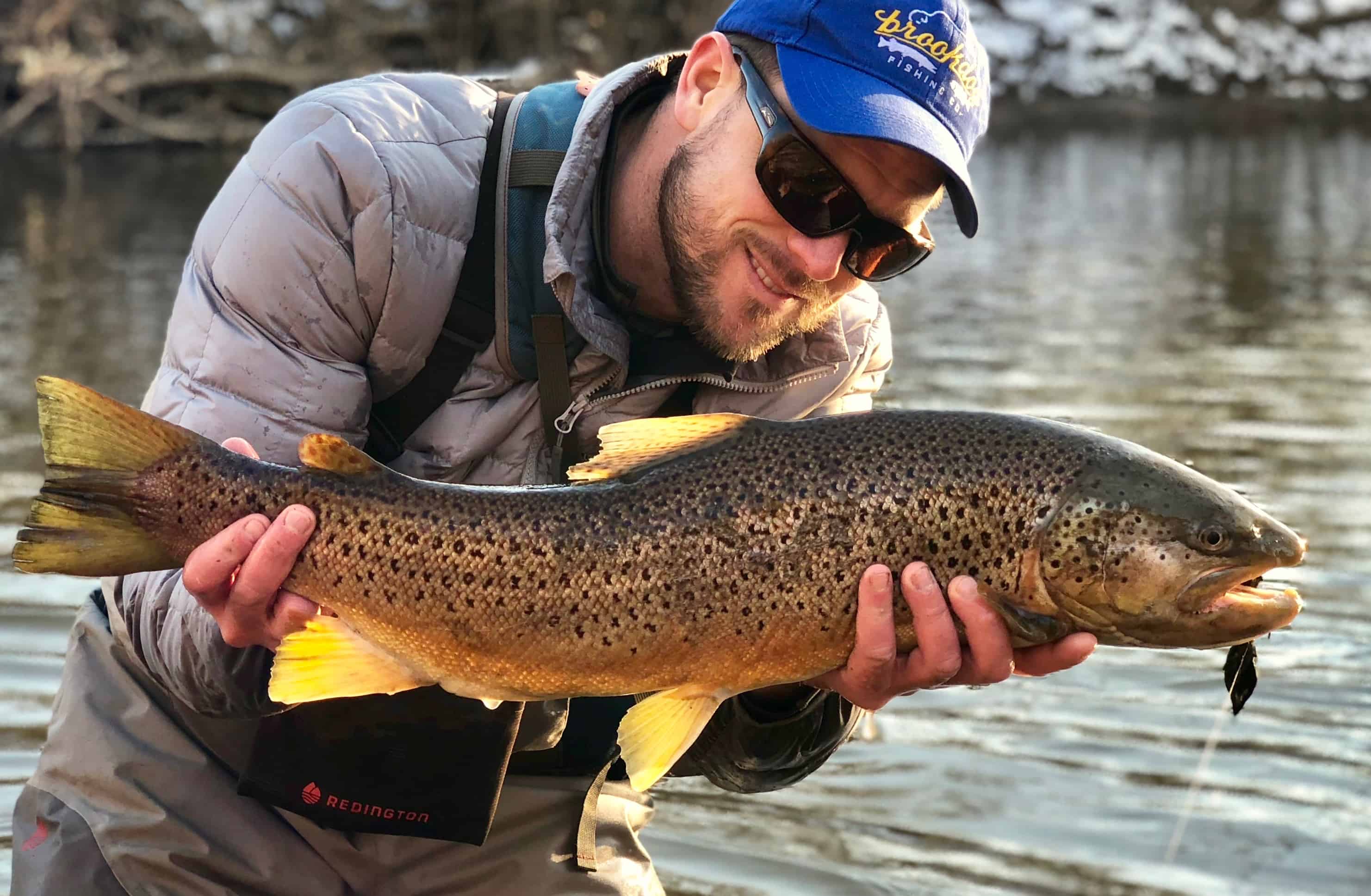
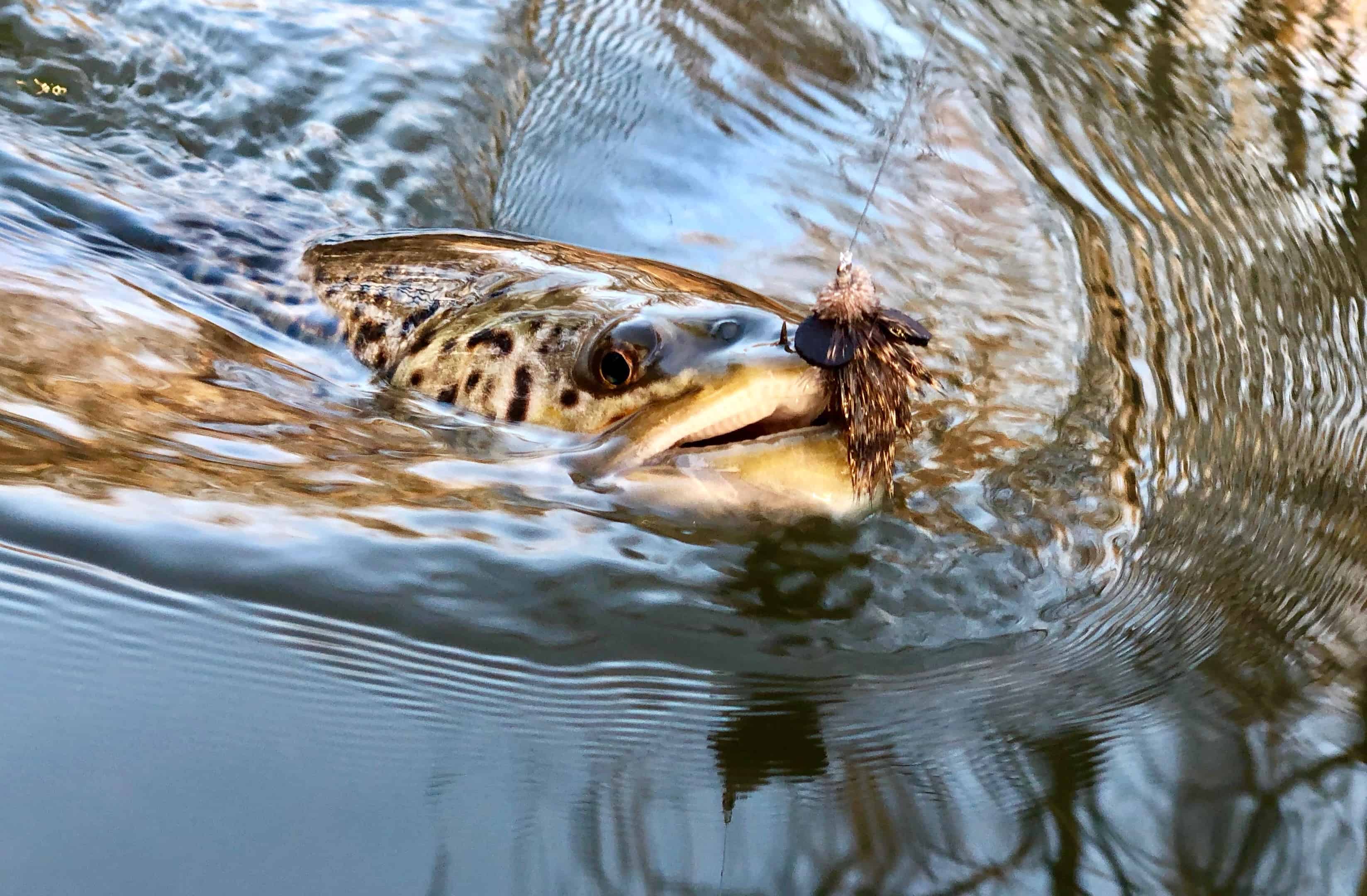
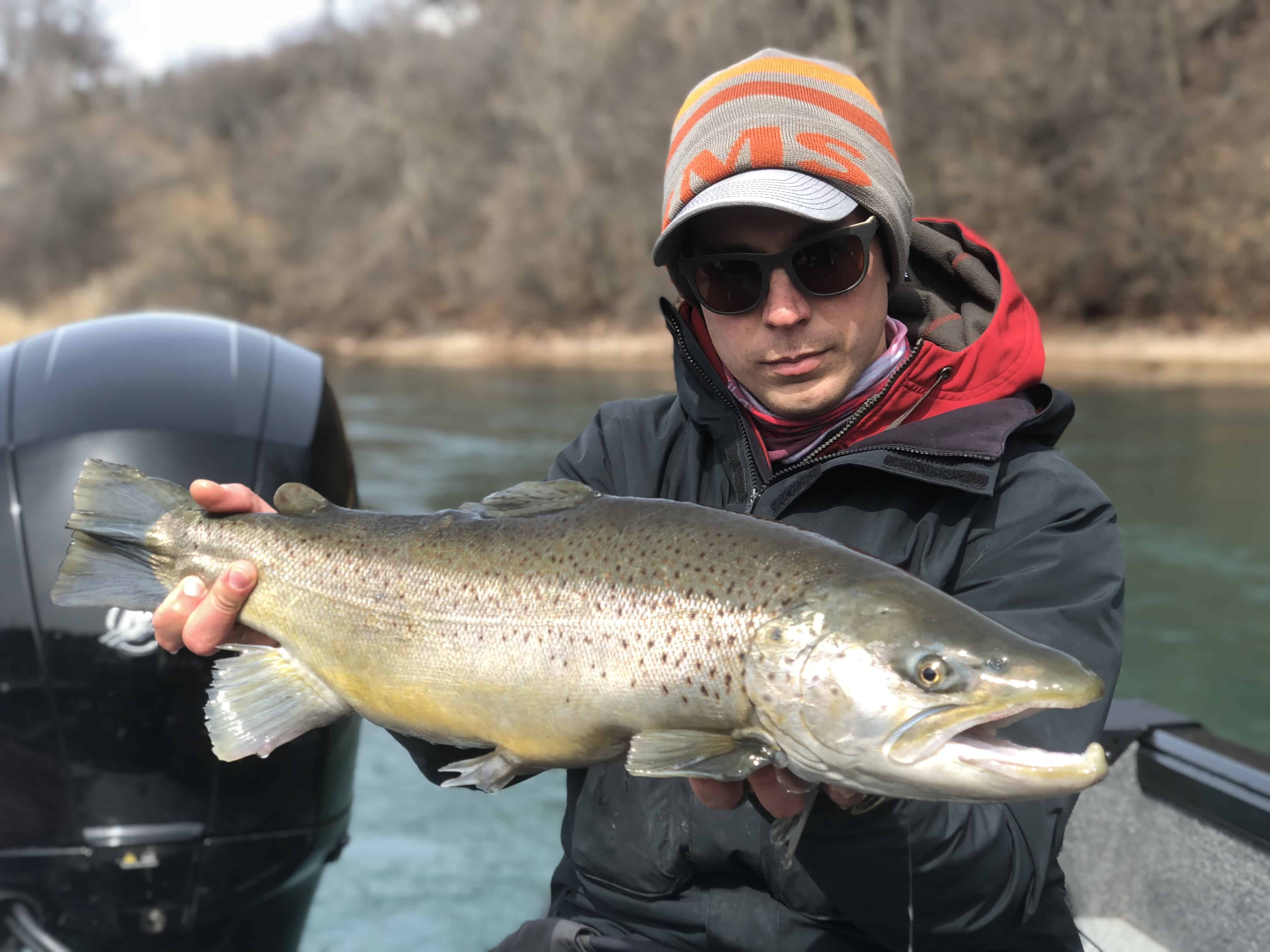
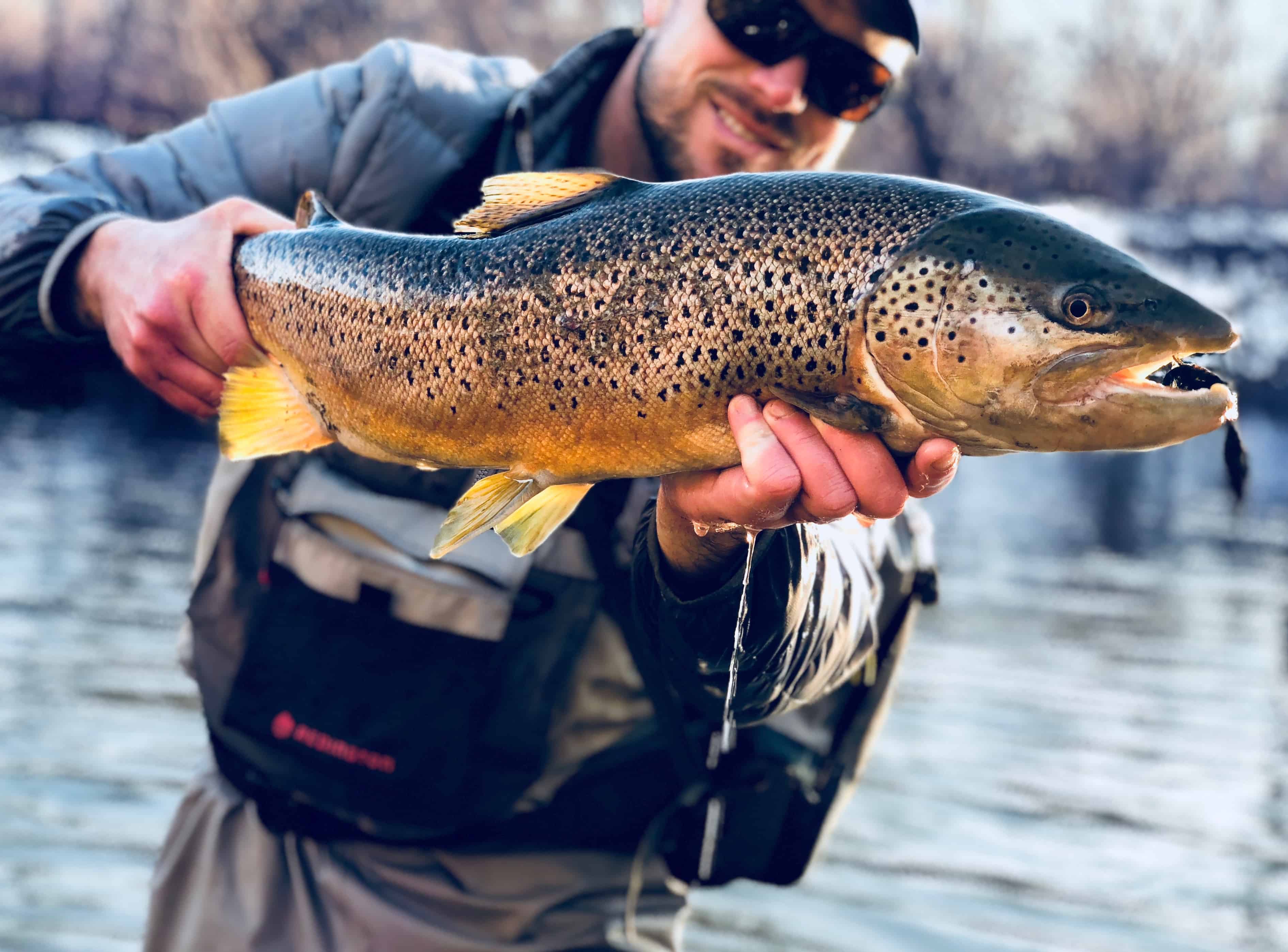
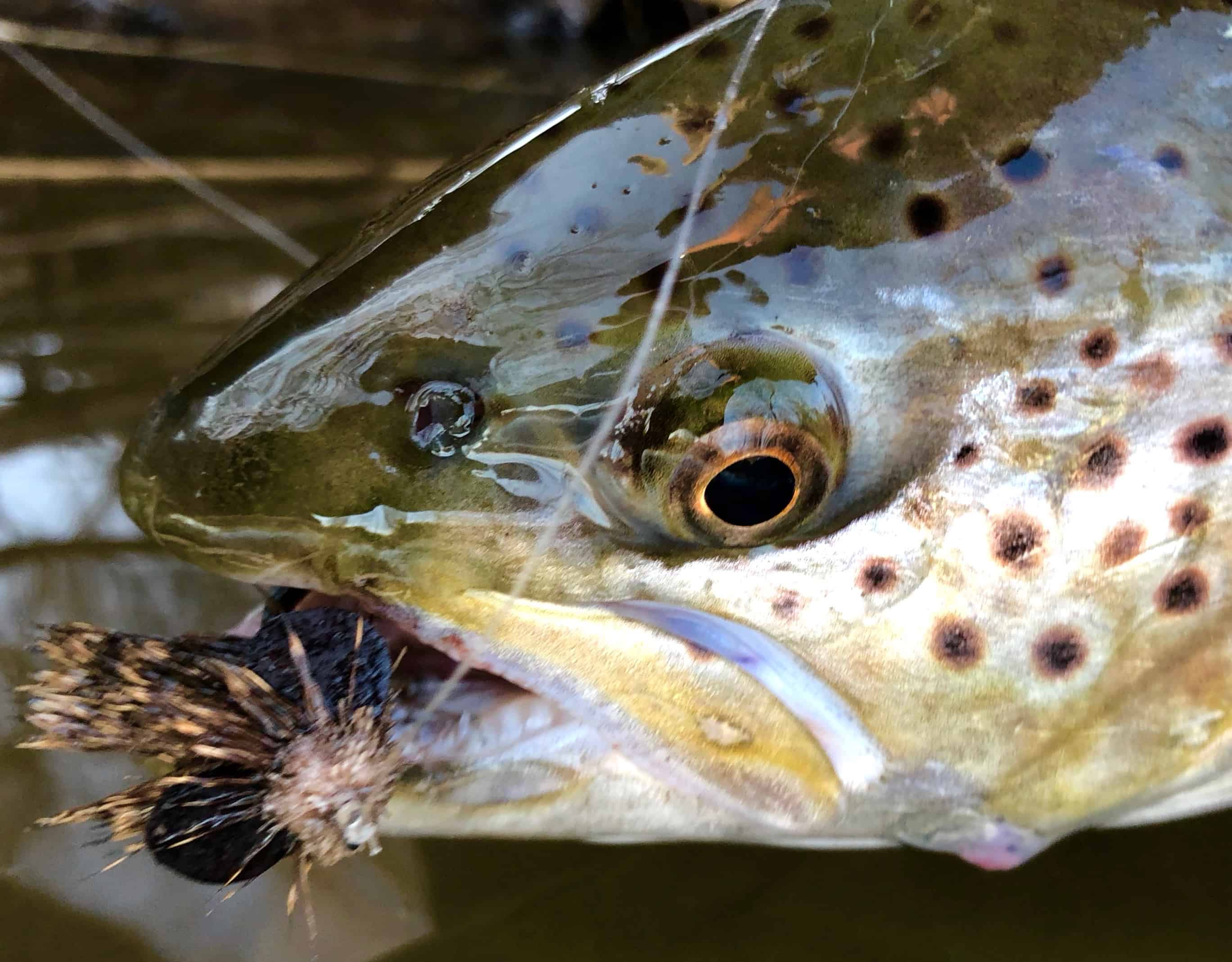
On the Docket for this week (2018.03.26 – 2018.04.01)
The weather looks good. The wind looks a bit dicey on a couple days but nothing too problematic. Temperatures will be in the upper 40s and low 50s! Finally, after about 5 months, we can fish without a beanie or gloves. It’s gonna feel weird. There is a good amount of precipitation in the forecast as well. That’s awesome because we need it. As we wait for that rain to fall, we’ll be spending all our time on the big water – picking away at fresh and drop back steel and lake trout. Give us a call if you want to get out there!
